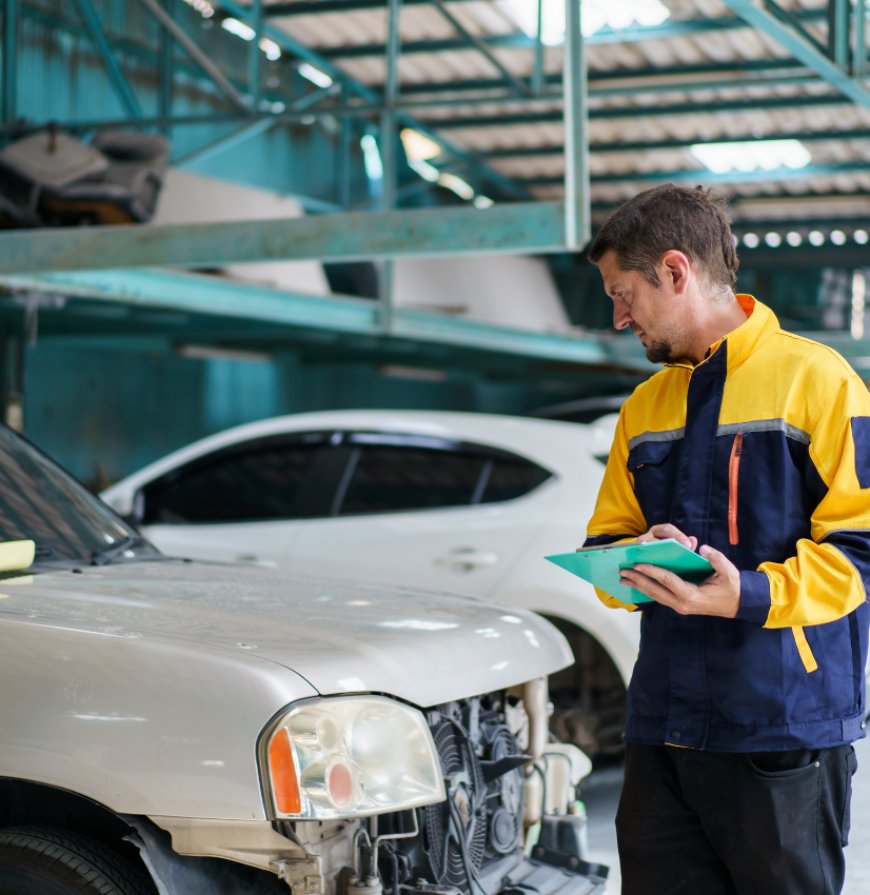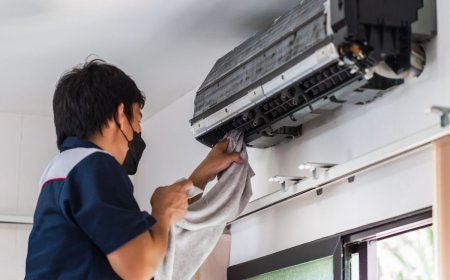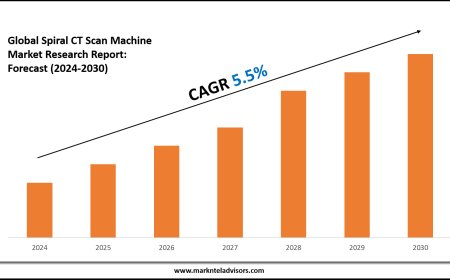Can Mobile Vehicle Inspections in Melbourne Detect Hidden Mechanical Issues?
Thinking about getting a used car or checking your current ride? Find out how mobile vehicle inspections in Melbourne uncover hidden mechanical issues before they become costly repairs.

In Melbourne’s fast-paced lifestyle, convenience is no longer a luxury—it's a necessity. And when it comes to car maintenance or buying a second-hand vehicle, mobile vehicle inspections are transforming the game. These services are designed to bring expert mechanics directly to your doorstep, ready to assess the condition of your car without the hassle of visiting a traditional workshop.
But a question that often arises is—can mobile vehicle inspections in Melbourne truly detect hidden mechanical issues? The short answer is yes, and this article delves deep into how and why.
1. What Are Mobile Vehicle Inspections?
Definition and Service Overview
Mobile vehicle inspections involve certified mechanics visiting your location to assess the overall health of a vehicle. Whether you're buying a used car, selling one, or just want peace of mind, these inspections cover crucial safety and performance aspects. They’re designed to identify any visible and hidden mechanical issues that could lead to costly problems later.
Who Conducts These Inspections?
Qualified automotive technicians, often licensed by Victorian authorities or affiliated with national auto bodies like VACC (Victorian Automobile Chamber of Commerce), perform these inspections. They bring portable diagnostic tools, ramps, lighting, and mechanical expertise to ensure nothing gets overlooked—even outside a conventional garage.
2. Common Hidden Mechanical Issues Found in Vehicles
Cars may look flawless on the outside while hiding expensive problems under the hood. Here’s a breakdown of what mobile inspectors are trained to identify:
Engine and Transmission Problems
-
Oil leaks from seals or gaskets
-
Overheating due to clogged radiators or faulty thermostats
-
Transmission slipping, grinding, or delay in shifting
-
Low compression in engine cylinders
Brake System Failures
-
Worn-out brake pads and rotors
-
Hidden leaks in brake lines
-
Faulty ABS sensors or control modules
Suspension and Steering Issues
-
Broken or worn suspension components like bushings, shocks, and struts
-
Misaligned steering
-
Signs of past accident damage affecting frame alignment
Electrical and Battery Faults
-
Dying or corroded battery
-
Alternator not charging correctly
-
Unnoticed fault codes in the ECU
Exhaust and Emission System Defects
-
Rust or cracks in exhaust pipes
-
Faulty oxygen sensors
-
Illegally modified systems that bypass emissions control
3. How Mobile Inspections Detect These Hidden Issues
Diagnostic Scan Tools and OBD-II Readers
Technicians use On-Board Diagnostics (OBD-II) scanners to read fault codes stored in the vehicle’s computer. These codes reveal hidden problems such as misfires, poor fuel efficiency, sensor errors, or emissions failures. Even if the check engine light isn’t on, underlying issues can still be detected.
Visual and Physical Inspection Techniques
Professionals use inspection mirrors, undercar creepers, flashlights, and tactile techniques to spot rust, leaks, and damage that the untrained eye would miss. They examine belts, hoses, undercarriage condition, and fluid levels.
Road Testing Procedures
Many issues only become evident while driving. That’s why mobile inspectors often perform a brief test drive to evaluate:
-
Engine response
-
Braking performance
-
Suspension comfort
-
Steering alignment
-
Gear shifting smoothness
Fluid Checks and Leak Detections
They check all fluids (oil, coolant, brake, transmission) for consistency, contamination, or low levels. Leaks are often telltale signs of bigger problems and are commonly found in engine seals, gaskets, and radiator systems.
4. Limitations of Mobile Inspections
While mobile inspections are thorough, they’re not perfect.
What They May Not Catch
Some internal problems like piston wear, clutch slippage (in automatic gearboxes), or worn timing chains may require deeper diagnostic testing or engine teardown, which isn’t possible during a mobile inspection.
Environmental or Equipment Limitations
Outdoor inspections are vulnerable to bad weather or uneven terrain. Some inspections may also be limited by space—tight apartment parking lots can hinder full access to the vehicle’s underside.
5. Benefits of Choosing a Mobile Vehicle Inspection in Melbourne
Convenience and Time Savings
Forget booking a time, waiting in line, and driving to a garage. Mobile inspections come to your driveway, office, or even a car dealership’s lot. This is ideal for busy professionals or elderly individuals in Melbourne.
Cost-Effectiveness
Spending $200–$300 on a comprehensive inspection could save you from a $3,000 engine repair later. It also gives you bargaining power when negotiating car prices.
Peace of Mind for Buyers and Sellers
Whether you’re a buyer wanting transparency or a seller wanting to establish trust, an inspection adds credibility. It also helps both parties understand the true value of the car.
6. Comparing Mobile Inspection Services in Melbourne
What to Look For in a Mobile Inspector
-
Certification and experience
-
Digital or PDF inspection reports
-
Availability of road tests and diagnostics
-
Transparent pricing and positive customer reviews
Average Pricing and Inclusions
In Melbourne, a basic pre-purchase mobile vehicle inspection typically costs between $200–$400. Expect the following inclusions:
-
Exterior and underbody visual checks
-
Engine diagnostics (OBD-II scan)
-
Brake, suspension, and fluid checks
-
Road test (if permitted by the owner)
Some providers offer premium packages with compression tests, battery load testing, or hybrid system diagnostics.
Recommended Providers in Melbourne
Though not exhaustive, some well-reviewed mobile vehicle inspection services in Melbourne include:
-
RACV Vehicle Inspections
-
State Roads Mobile Vehicle Inspections
-
Spot On Vehicle Inspections
-
Mobile Roadworthy Guys
(Please verify the latest reviews and certifications before booking.)
Conclusion: The Value of Mobile Vehicle Inspections
In the vibrant city of Melbourne, where people are constantly on the move, mobile vehicle inspections provide a crucial service—convenient, cost-effective, and surprisingly thorough. While they may not replace a full workshop teardown, these inspections can and do uncover the majority of hidden mechanical issues.
Whether you’re buying a used car, managing a fleet, or simply want peace of mind, booking a professional mobile inspection is a smart, proactive move. It’s a small price to pay for long-term security on the road.
Frequently Asked Questions (FAQs)
Q1: Can a mobile vehicle inspection detect all hidden problems in a used car?
A: Not all. While mobile inspections catch most surface and diagnostic issues, deep internal faults (like camshaft wear or internal clutch damage) may require more advanced equipment or dismantling.
Q2: How long does a typical mobile vehicle inspection take?
A: On average, 60 to 90 minutes. High-end or complex cars may take a bit longer, especially if diagnostic scanning is involved.
Q3: Are mobile inspections suitable for luxury or high-performance cars?
A: Yes, as long as the inspector has experience and access to the right diagnostic tools for specific models like BMW, Audi, Tesla, or Lexus.
Q4: What should I do if a mobile inspection finds problems?
A: You can negotiate the price, request repairs before purchase, or decide to walk away. Always use the report as a leverage point.
Q5: Is it worth paying extra for a comprehensive mobile inspection?
A: Absolutely. Spending a few extra dollars now can save you thousands in future breakdowns, especially with used or private-sale vehicles.

































































